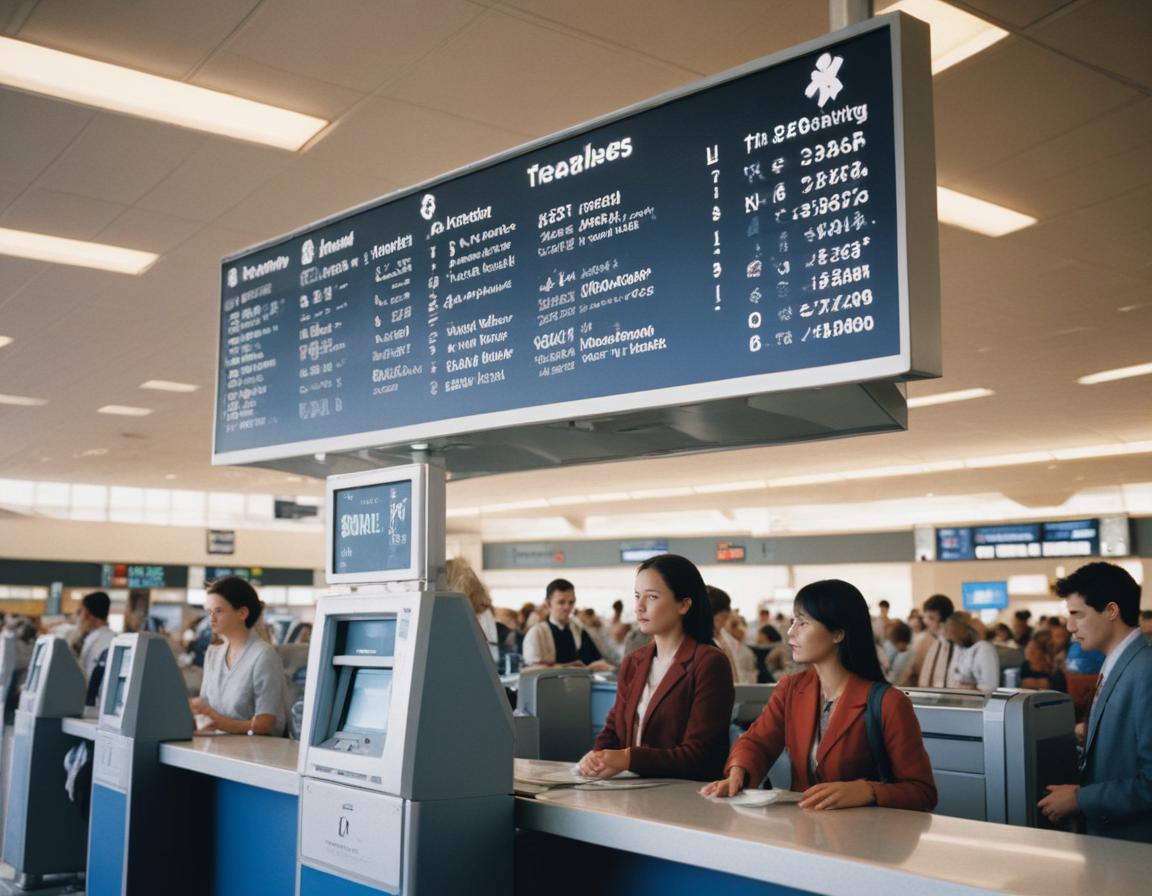≡-How Peru, US, Mexico, Bermuda, Germany, UK, France, Thailand Develop Tourism Infrastructure, Generating Revenue with Departure Tax from International Tourists, Full Details on How Much Levy Pinching Your Pocket – Viral of Today
<> Viral of Today <>
Home » PERU TRAVEL NEWS » How Peru, US, Mexico, Bermuda, Germany, UK, France, Thailand Develop Tourism Infrastructure, Generating Revenue with Departure Tax from International Tourists, Full Details on How Much Levy Pinching Your Pocket Friday, July 25, 2025Countries like Peru, the U.S., Mexico, Bermuda, Germany, the UK, France, and Thailand are increasingly relying on departure taxes as a key source of revenue for developing their tourism infrastructure. These taxes, often included in the cost of airline tickets, are applied to international tourists leaving the country, helping fund various initiatives such as airport upgrades, public transportation improvements, and sustainable tourism projects. The introduction of departure levies varies from country to country, with some nations imposing higher fees than others, significantly impacting the overall travel budget.For instance, Peru charges a US$30 international departure tax, while Mexico applies a $19.30 fee on outbound travelers. Bermuda has a $35 tax, and Germany imposes its Luftverkehrsteuer, with fees ranging from €15.53 to €70.83 depending on the flight destination. Countries like the U.S. and France also impose their respective departure taxes as part of the flight ticket, contributing to the maintenance and enhancement of their tourism facilities. In Thailand, a new 300 Baht tourism tax is being introduced to support conservation efforts. These levies not only generate essential revenue but also support the development of infrastructure that improves the visitor experience.As these taxes continue to grow, they pinch your pocket, adding additional costs to your vacation plans. Whether it’s small fees in Thailand or higher taxes in Europe, travelers must stay aware of these charges to better budget for their trips.Introduction to Departure Taxes: A Common Travel ExpenseDeparture taxes, often referred to as exit fees or embarkation fees, are charges that travelers must pay when leaving a country. These taxes are imposed by governments to help fund airport infrastructure, security measures, and various national services related to travel and tourism. While some of these fees are included in the cost of airline tickets, others require separate payment at the airport before departure.In 2025, departure taxes have become a common feature of international travel, with numerous countries implementing them to support their tourism sectors and maintain their transport infrastructure. However, these fees vary significantly across countries, and understanding them can help travelers better plan their budgets and avoid unexpected costs.The Global Landscape of Departure TaxesDeparture taxes are prevalent in many countries worldwide, particularly in high-traffic tourism destinations. Some countries charge these fees directly as taxes while others integrate them into the ticket price. While many travelers may not be aware of these charges, departure taxes can add up significantly, especially for frequent international travelers. Here’s a closer look at how various countries apply departure taxes and what travelers should expect.Peru: US$30 international departure taxPeru imposes a US$30 international departure tax on all travelers leaving the country, which is typically included in the price of airline tickets. Additionally, there is a US$6 tax on domestic flights within Peru. These fees are not new charges but have been in place for some time, contributing to the maintenance and improvement of the country’s airport infrastructure and aviation services. Travelers should keep these fees in mind when planning their trips, as they are already incorporated into ticket prices and generally don’t require additional payment at the airport.Australia: Passenger Movement Charge (PMC)Australia imposes a Passenger Movement Charge (PMC) of AUD $70 per passenger for international departures. This fee is collected directly by airlines and included in the cost of air tickets for international flights. The PMC applies to all passengers aged 12 and over, but it does not apply to infants and certain other exempt categories. The PMC helps fund Australia’s border security and infrastructure, ensuring smooth travel through Australian airports.Given that Australia is a popular destination for travelers, the PMC ensures the country’s airports maintain their operations while managing growing international tourism demand. It’s also essential for travelers to remember that this tax is typically already included in the ticket price, so there are no additional fees to pay at the airport.United Kingdom: Air Passenger Duty (APD)The Air Passenger Duty (APD) is another well-known departure tax applied to passengers flying from the UK. This tax varies based on the destination and class of travel, with long-haul flights typically subject to higher fees than short-haul routes.For instance, passengers traveling to destinations like the Caribbean or North America will pay between £156 and £180 in APD for long-haul flights. Shorter flights within Europe typically attract a much lower rate of £13 for economy class. The APD has been a source of controversy for many years, with critics pointing out that it makes travel to the UK more expensive for both leisure and business travelers.While the APD is built into the cost of your ticket, it is a fee that travelers should keep in mind when planning international flights to and from the UK.Japan: Sayonara TaxIn Japan, travelers must pay a Sayonara Tax, a departure fee that costs ¥1,000 (approximately $9.37 USD) per person. This fee was introduced to help support the nation’s tourism infrastructure, including efforts to preserve its natural beauty and cultural heritage.The Sayonara Tax applies to all international travelers departing from Japan by air or sea. While the amount may seem minimal, it is an additional charge that travelers should consider when booking flights to or from Japan. The tax has been well received by travelers as it supports the sustainability of the country’s tourism sector, ensuring the continued protection of Japan’s natural landscapes and cultural treasures.Germany: Luftverkehrsteuer (Air Traffic Tax)Germany imposes the Luftverkehrsteuer or air passenger tax on international travelers departing from its airports. The amount of tax varies depending on the destination:€15.53 for short-haul flights (less than 2,500 km).€39.34 for medium-haul flights (2,500 to 6,000 km).€70.83 for long-haul flights (more than 6,000 km).This tax applies to all passengers, including children, and is collected by airlines as part of the flight ticket price. The Luftverkehrsteuer helps fund Germany’s aviation sector, particularly airport infrastructure and airline operations.For frequent travelers to and from Europe, the Luftverkehrsteuer is an important consideration, especially if traveling from Germany to popular international destinations like North America or Asia.United States: International Departure TaxThe U.S. imposes an international departure tax of $13.40 per passenger for international air travel. This tax is typically included in the price of international flights and is collected by airlines. While the tax is relatively low compared to other countries, it is still an additional cost that travelers need to account for when booking flights.This fee is applied to all passengers departing from U.S. airports on international flights, with exceptions for certain groups, such as children under 2 or diplomats. While not as high as some of the taxes seen in other countries, it still adds up for frequent international travelers.Mexico: Departure Tax for Non-NationalsMexico charges a departure tax of approximately $19.30 USD for non-Mexican nationals leaving the country by air. This tax is typically included in the price of the airline ticket, so travelers do not need to pay it separately at the airport. It applies to international flights departing from Mexico’s major airports, including Cancún and Mexico City.The revenue from this tax helps support Mexico’s tourism infrastructure, making it a crucial source of funding for the government’s efforts to maintain the country’s beaches, historic landmarks, and cultural sites that attract millions of tourists each year.Thailand: Tourism Tax for VisitorsThailand plans to introduce a new tourist tax in 2025, which will charge 300 Thai Baht (approximately $9 USD) per visitor. This fee will be used to fund tourism-related projects, including the conservation of Thailand’s natural and cultural heritage. While the tax is not yet implemented, it is expected to be part of Thailand’s strategy to improve its tourism sector and invest in sustainable travel.This move aligns with Thailand’s increasing focus on sustainable tourism, helping ensure that the country can balance the needs of visitors with environmental conservation. The tourism tax is expected to be collected upon entry, either online or at the airport.Bermuda: Departure TaxBermuda charges a $35 departure tax for all international travelers. This fee is generally included in the ticket price, but it can also be paid directly at the airport. It applies to all passengers flying out of the island, with exceptions for children under 2 and certain other exemptions.This departure tax helps fund the maintenance of Bermuda’s transport infrastructure, including its airport facilities and border security measures. While the amount is relatively small, it is an important source of revenue for the island’s tourism sector.France’s Air Passenger Tax: A Major Increase in FeesIn March 2025, France made headlines with a substantial increase in its Air Passenger Duty (APD), also known as the Luftverkehrsteuer. The new tax structure imposes higher fees on air travel, depending on the destination and class of service. For example:European destinations will now face a tax of €7.40 for economy class, up from €2.63.Intermediate destinations are taxed at €15.00.Long-haul destinations will be taxed at €40.00.The increased tax aims to generate additional revenue for France’s tourism and environmental projects, as well as airport infrastructure maintenance. This change comes at a time when France is also seeking to fund its climate goals and improve its aviation sector in the face of growing international travel demand.This increase, while relatively modest, has drawn criticism from both airlines and travelers, particularly those traveling from high-traffic airports like Charles de Gaulle in Paris. Airline associations warn that these increased costs could lead to higher fares and potentially discourage travelers from visiting the country.Maldives Introduces Departure Tax: A Focus on Sustainable GrowthIn the Maldives, a departure tax of $35 USD has been introduced for travelers leaving the country. This fee, which is typically included in the airline ticket price, supports the Maldives’ tourism infrastructure and environmental preservation initiatives. As one of the most sought-after luxury travel destinations, the Maldives is facing the challenges of balancing tourism growth with the preservation of its delicate ecosystems, such as coral reefs and beachfront areas.The Maldives’ introduction of a departure tax reflects an increasing global trend of using such funds to sustainably manage high-traffic tourist destinations. Travelers to the Maldives should keep in mind this added cost, which is already included in most flight packages but could be an unexpected expense for those booking flights separately.Mexico’s Departure Tax: Contributing to Infrastructure and DevelopmentMexico charges a departure tax of approximately $19.30 USD for international travelers, typically included in the price of the airline ticket. This tax is used to fund Mexico’s growing airport infrastructure and help improve tourism facilities for both international and domestic travelers. As a top destination for tourists seeking beautiful beaches, ancient ruins, and vibrant cities, the tax supports Mexico’s ongoing efforts to ensure a smooth travel experience for millions of visitors each year.In recent years, Mexico’s tourism industry has experienced significant growth, and this departure tax helps ensure that the country can continue to maintain the high standards of service and infrastructure that travelers expect.Departure Taxes as a Global NormAs global travel continues to grow, so too does the implementation of departure taxes in countries around the world. While the fees may vary greatly, from small charges like $10 in Japan to larger fees like $70 in Germany, they all contribute to the maintenance and development of the aviation sector, airport infrastructure, and tourism-related services.For travelers, being aware of these fees is crucial for budgeting, especially for frequent international travelers. Many of these taxes are included in the ticket price, but it’s important to verify when booking to avoid surprises at the airport.As travel becomes more accessible and affordable, departure taxes will likely remain a constant feature of the global travel experience, helping to support the infrastructure that keeps the world moving.Key Takeaways: The Impact of Departure Taxes on Global TravelDeparture taxes are a common feature of international travel, and their role in supporting national tourism infrastructure is becoming increasingly important. These fees are typically collected by airlines, but travelers need to be aware of them when booking flights, as they can add to the overall cost of their trip. In 2025, countries like France, Japan, Indonesia, and Mexico have all adjusted or introduced departure taxes that directly impact how travelers plan their budgets.For frequent international travelers, especially those heading to popular destinations like France, Japan, and Bali, these taxes represent an additional but necessary cost to help maintain and improve local infrastructure, environmental sustainability, and the quality of the travel experience. While some may view these fees as an inconvenience, they play a vital role in ensuring that tourism continues to be a positive force for economic growth, conservation, and cultural preservation.As the global tourism landscape evolves, it’s likely that more countries will introduce or adjust their departure taxes to reflect the growing need for sustainable tourism. Whether you’re planning a luxury getaway to the Maldives or a cultural journey through Bali, understanding these fees and budgeting accordingly will help ensure a smoother, more informed travel experience.
This information will surprise you!
See also
- Read until the end to discover everything.
- Important information you need to know.
- Interesting facts and helpful tips.
Conclusion
Did you enjoy the news? Keep following us daily!













